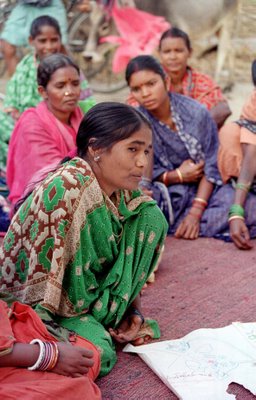 © UNESCO/B. O'Malley
© UNESCO/B. O'MalleyThe UNESCO prizes are awarded annually in recognition of particularly effective contributions to the fight against illiteracy, one of UNESCO’s priorities. This year’s Prizes have been attributed to the following literacy projects:
The UNESCO International Reading Association Literacy Prize* has been awarded to the National Commission for Human Development (NCHD) of Pakistan, which provides literacy classes to adults and to out-of-school children, recruits volunteers and schoolteachers to ensure wide community participation in the enrolment of children in school. >> More
The Mother Child Education Foundation (Turkey) has received one of the two UNESCO King Sejong Literacy Prizes** for its contribution to literacy, and to raising women’s political awareness and participation in decision-making processes. The other UNESCO King Sejong Literacy Prize was given to the Youth and Adult Literacy and Education Chair of the Latin American and Caribbean Pedagogical Institute of the Republic of Cuba (IPLAC). Its program – Yo, sí puedo – has been adapted to, and replicated in different parts of the world.
As for the two UNESCO Confucius Prizes for Literacy***, awarded for the first time this year, one prize was presented to the Ministry of National Education of the Kingdom of Morocco for its Non-formal Education Programme designed specifically for marginalized adolescents in rural areas. The other UNESCO Confucius Prizes for Literacy is awarded to the Directorate of Literacy and Continuing Education of Rajastan, India for having raised literacy significantly among both men and women during the past decade through innovative programs – including educational camps covering subjects such as vaccination, sanitation, child care, family planning, environmental issues, etc.
**The two US $ 20,000 King Sejong Literacy Prizes were created in 1989 through the generosity of the government of the Republic of Korea.
***The US $ 20,000 UNESCO Confucius Prize for Literacy was established 2005 through the generosity of the Government of the People’s Republic of China.




